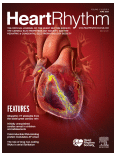 Myotonic dystrophy type 1 (DM1) is one of the most common neuromuscular diseases in adults. It is due to the pathological presence of expansions of CTG nucleotide triplets which result in trapping messenger RNAs inside the cell nucleus. Its clinical manifestations are, by nature, multisystemic: muscular and cardiac damage, cataracts, various endocrine disturbances, etc. Cardiac complications make it all the more serious. These are generally conduction or rhythm disturbances, with a significant risk of sudden death in the absence of treatment (pacemaker, implantable cardiac defibrillator, etc.). A myotonia, especially manual, is observed in the majority of patients and can be improved by mexiletine, a membrane stabilizer given orally.
Myotonic dystrophy type 1 (DM1) is one of the most common neuromuscular diseases in adults. It is due to the pathological presence of expansions of CTG nucleotide triplets which result in trapping messenger RNAs inside the cell nucleus. Its clinical manifestations are, by nature, multisystemic: muscular and cardiac damage, cataracts, various endocrine disturbances, etc. Cardiac complications make it all the more serious. These are generally conduction or rhythm disturbances, with a significant risk of sudden death in the absence of treatment (pacemaker, implantable cardiac defibrillator, etc.). A myotonia, especially manual, is observed in the majority of patients and can be improved by mexiletine, a membrane stabilizer given orally.
In an article published in June 2020, Italian clinicians took an interest in this drug, the potential cardiac side effects of which are known in the general population. The clinical data, in particular cardiac data, of 18 patients with DM1 under mexiletine were compared with those of 68 control patients, with a median follow-up of four and a half years. The authors did not observe any more rhythmic complications in treated patients, concluding that mexiletine, at least at the standard recommended dose (200 mg twice daily), can be prescribed safely.
